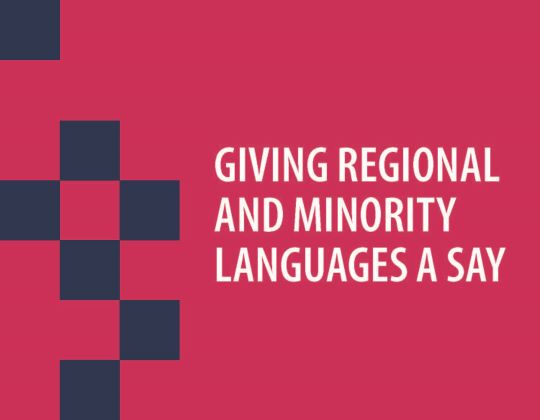Signatures and ratifications of the European Charter for Regional or Minority Languages

The following 25 States have ratified the Charter:
Armenia
Austria
Bosnia and Herzgovina
Croatia
Cyprus
Czechia
Denmark
Finland
Germany
Hungary
Liechtenstein
Luxembourg
Montenegro
Netherlands
Norway
Poland
Romania
Serbia
Slovak Republic
Slovenia
Spain
Sweden
Switzerland
Ukraine
United Kingdom
Chart of signatures and ratifications of the European Charter for Regional or Minority Languages
Ratification instruments (list of obligations)
What commitments do states enter into?
The situation of the languages covered by the Charter differs greatly and they exist in a very wide range of social, political and economic contexts. Accordingly, the system of undertakings adopted for the Charter makes it possible to adapt the scope of the protection afforded to suit the particular situation of each language, and also to take account of the costs of application. The Charter is divided into two main parts, a general one containing the principles applicable to all the Parties and all regional or minority languages, and one which lays down specific practical commitments which may vary according to the state and the language.
 Eight fundamental principles applicable to all regional or minority languages (Part II, Article 7)
Eight fundamental principles applicable to all regional or minority languages (Part II, Article 7)
Part II sets out the main principles and objectives upon which States must base their policies, legislation and practice, and which are regarded as providing the necessary framework for the preservation of the languages concerned. These eight fundamental principles and objectives are as follows:
- Recognition of regional or minority languages as an expression of cultural wealth;
- Respect for the geographical area of each regional or minority language;
- The need for resolute action to promote regional or minority languages;
- The facilitation and/or encouragement of the use of regional or minority languages, in speech and writing, in public and private life;
- The provision of appropriate forms and means for the teaching and study of regional or minority languages at all appropriate stages;
- The promotion of relevant transnational exchanges;
- The prohibition of all forms of unjustified distinction, exclusion, restriction or preference relating to the use of a regional or minority language and intended to discourage or endanger its maintenance or development;
- The promotion by states of mutual understanding between all the country’s linguistic groups.
 A choice among 68 concrete undertakings in seven areas of public life (Part III, Articles 8 to 14)
A choice among 68 concrete undertakings in seven areas of public life (Part III, Articles 8 to 14)
Part III lays down a series of concrete measures designed to facilitate and encourage the use of regional or minority languages in several areas of public life: education, courts, administration, media, culture, economic and social life, and cross-border co-operation. Firstly states have to specify the languages to which they agree to this part being applied, and then they have to select at least 35 undertakings in respect of each language. A large number of provisions consist of several options, of varying degrees of stringency, one of which has to be chosen “according to the situation of each language” in policy, legislation and practice. For example, states may choose to make available education in regional or minority languages or to provide only for the teaching of these languages; they may opt to facilitate the creation of a radio station or TV channel in a regional or minority languages or to just encourage the broadcasting of programmes in this language on existing stations and channels.
The parties are encouraged subsequently to add to their commitments, as their legal situation develops or as their financial circumstances allow (Article 3.2).



